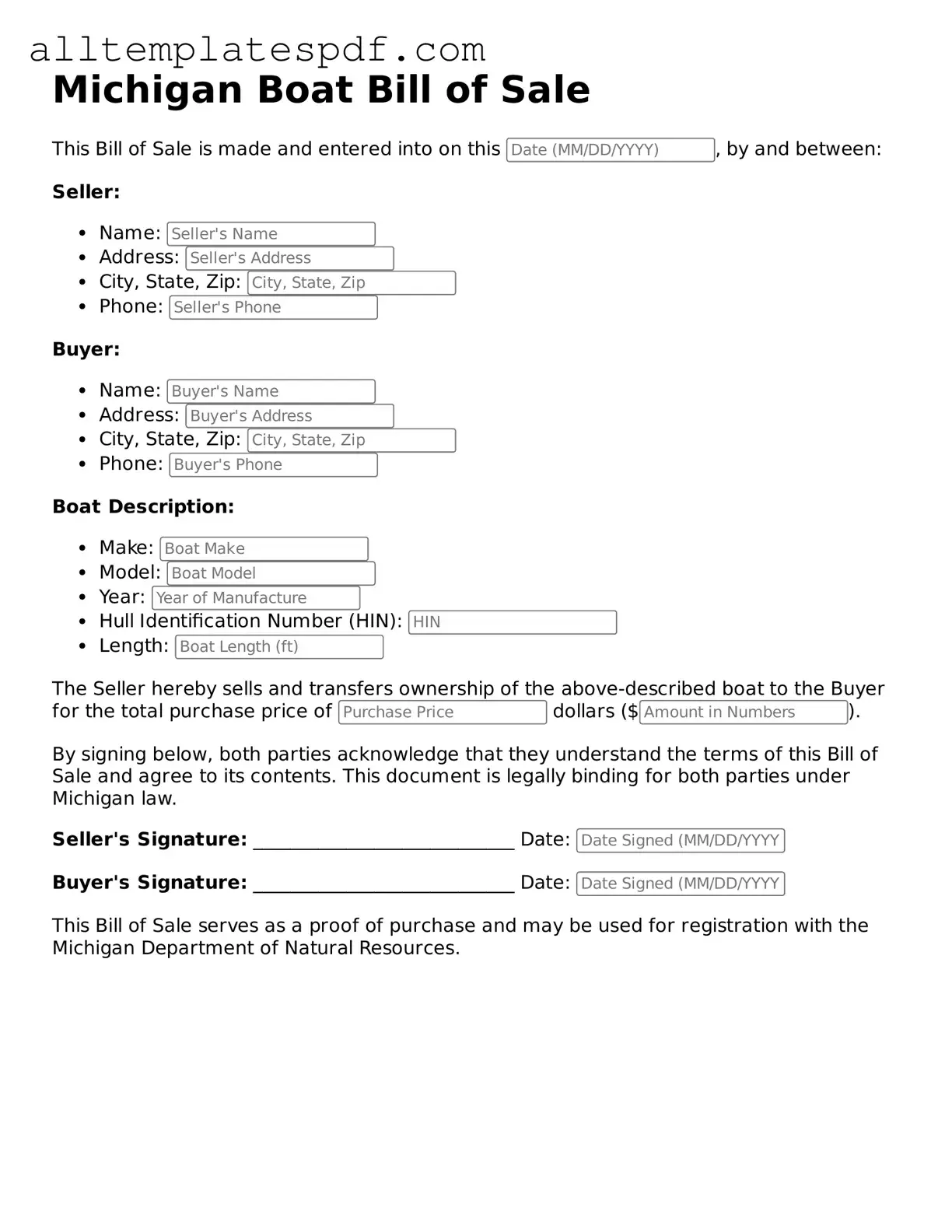Blank Boat Bill of Sale Template for the State of Michigan
The Michigan Boat Bill of Sale form serves as a crucial document that officially records the transfer of ownership for a boat in the state of Michigan. This form not only protects both the buyer and seller by providing a written record of the transaction, but it also ensures compliance with state regulations. If you're ready to complete your boat sale, fill out the form by clicking the button below.
Open Editor

Blank Boat Bill of Sale Template for the State of Michigan
Open Editor
Fast and easy form completion
Complete Boat Bill of Sale digitally — fast and easy.
Open Editor
or
↓ Boat Bill of Sale PDF Form
